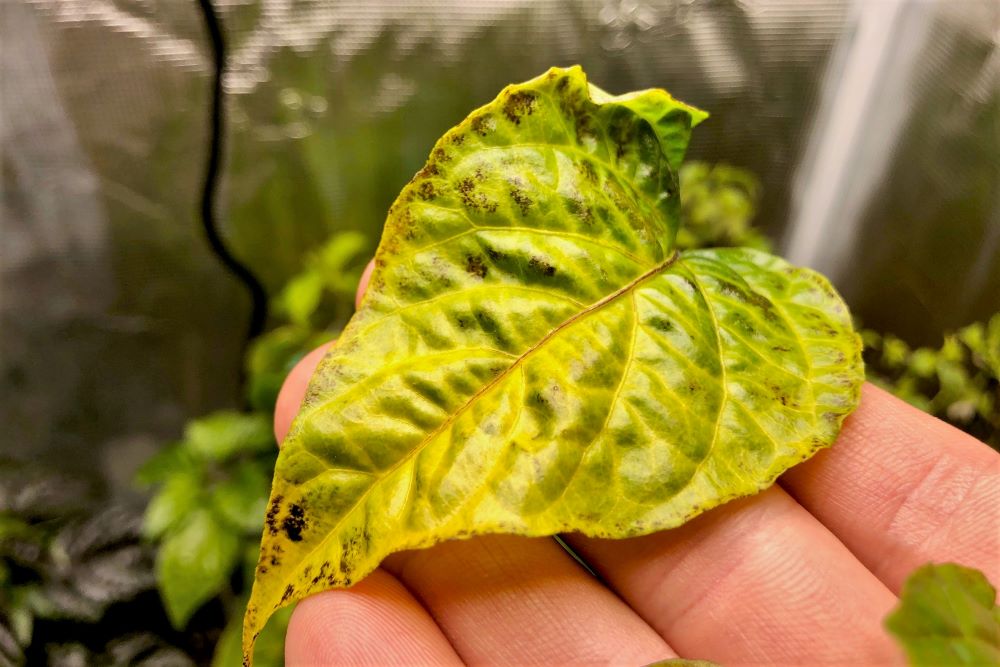How Plant Foods Play a Critical Function in Growing Healthy and Bountiful Pepper Crops
Fertilizers work as the foundation of effective pepper cultivation, using a tactical method to nurturing the dirt and promoting optimum plant growth. The elaborate dancing in between vital nutrients and the pepper plants' physiological procedures underscores the essential role that fertilizers play in guaranteeing a plentiful harvest. From sustaining robust origin advancement to strengthening disease resistance, the impact of fertilizers is significant in the cultivation of fruitful and healthy pepper plants. Stay tuned to discover the nuanced methods which fertilizers contribute to the prospering of pepper plants and the lasting practices that underpin their efficiency.
Relevance of Nutrient-Rich Plant Foods
The use of nutrient-rich fertilizers plays a pivotal role in improving the efficiency and top quality of pepper crops in modern agricultural practices. Potassium, phosphorus, and nitrogen are primary nutrients that are crucial for the growth and advancement of pepper plants.
Poor degrees of these nutrients can result in stunted growth, reduced yields, and susceptibility to conditions (best fertilizers for peppers). Nutrient-rich fertilizers offer a targeted option to make certain that pepper plants get the necessary components for optimal development and efficiency. Additionally, these plant foods help enhance soil fertility with time, developing a sustainable environment for long-term pepper farming
Enhancing Plant Development and Growth
To maximize plant growth and development in pepper plants, tactical application of nutrient-rich fertilizers is necessary. Plant foods play an important role in boosting the total health and performance of pepper plants by supplying them with necessary nutrients that may be lacking in the dirt. Nitrogen, potassium, and phosphorus are primary macronutrients called for in huge quantities by peppers for durable development. Nitrogen aids in leafy environment-friendly development and general plant vitality, phosphorus sustains root advancement and flower formation, while potassium contributes to disease resistance and fruit quality.
Along with these macronutrients, trace elements such as zinc, iron, and magnesium are also essential for the appropriate performance of various plant procedures. Iron, as an example, is needed for chlorophyll production, which is vital for photosynthesis and total plant growth. Zinc plays a vital role in enzyme activity and hormonal agent synthesis, impacting plant development and growth at a cellular degree. Magnesium is essential for the formation of chlorophyll and general energy transfer within the plant.

Boosting Disease Resistance With Fertilizers
By strategically integrating targeted fertilizers, farmers can strengthen the condition resistance of pepper plants, making certain optimal plant health and productivity. Fertilizers including vital nutrients like phosphorus, nitrogen, and potassium play a vital duty in reinforcing pepper plants' immune systems, making them extra resistant to numerous illness.

Making Best Use Of Pepper Yield With Fertilization
Using a balanced fertilizing technique is crucial to achieving optimum pepper return and making sure ideal crop efficiency. By offering peppers with the ideal nutrients at the ideal time, farmers can substantially improve their yield potential. Nitrogen, phosphorus, and potassium are important elements for pepper development, with nitrogen assisting in leaf and stem growth, phosphorus sustaining root development and flower development, and potassium promoting overall plant wellness.
To take full advantage of pepper yield, it is critical to perform dirt tests to figure out existing nutrient levels and recognize any kind of deficiencies that require to be dealt with. Based upon these results, farmers can create a tailored fertilizing plan that fulfills the specific demands of their pepper crops. Additionally, proper fertilizing strategies such as split applications throughout the growing season can guarantee continuous nutrition accessibility for the plants.

Lasting Fertilizer Practices for Peppers
In thinking about lasting plant food techniques for peppers, it is vital to concentrate on lasting dirt health and environmental stewardship along with optimizing plant productivity. Sustainable fertilizer practices aim to enhance or preserve dirt fertility while lessening adverse environmental impacts. One key method is using natural plant foods such as garden compost, manure, or cover plants, which not just supply essential nutrients to the peppers but also add to soil framework and microbial activity. These organic options help develop organic matter in the dirt, boosting its capacity to preserve water and nutrients, thereby supporting long-term plant health and resilience.
Additionally, accuracy agriculture techniques, such as dirt testing and targeted nutrient applications, can aid enhance fertilizer usage, making sure that peppers receive the nutrients they require without excess overflow right into waterways. This not just benefits the environment by lowering contamination but additionally saves prices for farmers by lessening waste. By embracing sustainable fertilizer techniques, pepper growers can protect the health and wellness of their crops, soil, and surrounding communities for future generations.
Final Thought
In final thought, plant foods are necessary for growing plentiful and healthy and balanced pepper crops. best fertilizers for peppers. They give required nutrients for plant development and advancement, boost disease resistance, Resources and optimize yield. By executing lasting fertilizer practices, farmers can make sure the long-term health and wellness of their pepper plants and contribute to a much more environmentally-friendly and reliable farming system
The elaborate dance in between essential nutrients and the pepper plants' physiological processes emphasizes the pivotal role that plant foods play in making certain a plentiful harvest.To optimize plant growth and advancement in pepper plants, critical application of nutrient-rich plant foods is important. Fertilizers play a vital role in enhancing the general health and wellness and performance of pepper plants by providing them with vital nutrients that may be lacking in the dirt.By strategically integrating targeted plant right here foods, farmers can strengthen the disease resistance of pepper plants, making certain optimal plant health and wellness and productivity. Fertilizers including essential nutrients like nitrogen, potassium, and phosphorus play a critical role in strengthening pepper plants' immune systems, making them more durable to numerous diseases.